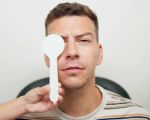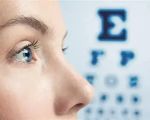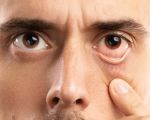How to Manage Light Sensitivity: Practical Tips for Daily Comfort
- understanding-the-causes-of-light-sensitivity
- lifestyle-adjustments-to-reduce-symptoms
- tools-and-products-that-can-help
- when-to-seek-medical-advice
- real-life-case-light-sensitivity-and-school
- how-eye-docs-can-provide-relief
1. Understanding the Causes of Light Sensitivity
Light sensitivity, medically known as photophobia, can be more than just discomfort—it can disrupt daily routines and impact quality of life. Learning how to manage light sensitivity starts by identifying its root cause. Common reasons include migraines, dry eyes, concussions, eye strain from digital screens, and certain medications.
It’s important to recognize whether light sensitivity is a symptom of an underlying condition or a standalone issue. For instance, people with blue or green eyes often report more discomfort in bright environments due to having less melanin in their irises. On the other hand, those with eye injuries or chronic illnesses like lupus may experience severe sensitivity that requires medical attention.
2. Lifestyle Adjustments to Reduce Symptoms
Adjusting your daily routine can significantly help when learning how to manage light sensitivity. One of the easiest changes is to reduce exposure to fluorescent lighting, which tends to be harsh and flicker more than natural light. Replacing it with LED lighting or using dimmer switches at home can make a big difference.
Wearing a wide-brimmed hat or photochromic lenses when outside can shield the eyes from direct sunlight. Indoors, using light-filtering blinds and soft-tone lighting can help create a more comfortable atmosphere. Many people also find relief by adjusting their screen brightness and using "dark mode" settings on digital devices, particularly during long hours of work or study.
3. Tools and Products That Can Help
If you’re wondering how to manage light sensitivity effectively, the right tools can make all the difference. Tinted glasses—especially those with FL-41 lenses—are known to filter specific wavelengths of light that can trigger migraines or discomfort. Anti-glare coatings on prescription lenses also reduce sensitivity for those who wear glasses daily.
Another helpful option is using lubricating eye drops to relieve dryness, which often intensifies photophobia. For computer users, installing screen filters or blue-light-blocking software like f.lux can reduce digital strain. Eye Docs offers a wide range of these vision protection tools, with experts available to help you find products best suited to your specific sensitivity levels.
4. When to Seek Medical Advice
While some forms of light sensitivity are manageable at home, others may indicate more serious concerns. If your symptoms are sudden, worsening, or accompanied by pain, dizziness, or nausea, it’s crucial to consult an eye specialist. Chronic photophobia could be linked to issues such as corneal damage, uveitis, or even neurological disorders.
Dr. Hammond, an ophthalmologist at Eye Docs, often emphasizes that persistent light sensitivity should not be ignored. "A thorough eye exam can uncover hidden causes and allow us to tailor treatment," he notes. Treatment might include prescription glasses, eye drops, or even vision therapy, depending on the diagnosis.
5. Real-Life Case: Light Sensitivity and School
Consider 14-year-old Liam, who struggled in school due to harsh classroom lighting. He often complained of headaches and squinting, and teachers noticed a drop in his performance. After a consultation at Eye Docs, Liam was diagnosed with light sensitivity triggered by prolonged screen use and fluorescent lights.
With a combination of FL-41 tinted lenses and adjusted screen settings, Liam’s condition dramatically improved. Not only did his focus return, but he also regained confidence in class. His story is just one example of how recognizing and addressing light sensitivity can transform everyday life for both teens and adults.
6. How Eye Docs Can Provide Relief
If you're looking for trusted advice on how to manage light sensitivity, Eye Docs is a reliable partner in vision care. Our specialists understand the complexity of photophobia and are equipped to offer both short-term relief and long-term strategies. Whether it’s fitting custom lenses or suggesting appropriate lighting for your home or workspace, we take a personalized approach to each case.
We also carry curated products like blue-light-blocking glasses, therapeutic eye drops, and screen filters—all tested and recommended by our optometrists. Managing light sensitivity isn’t about avoiding light altogether—it’s about finding balance. At Eye Docs, we help you reclaim comfort in your everyday life, starting with your eyes.








